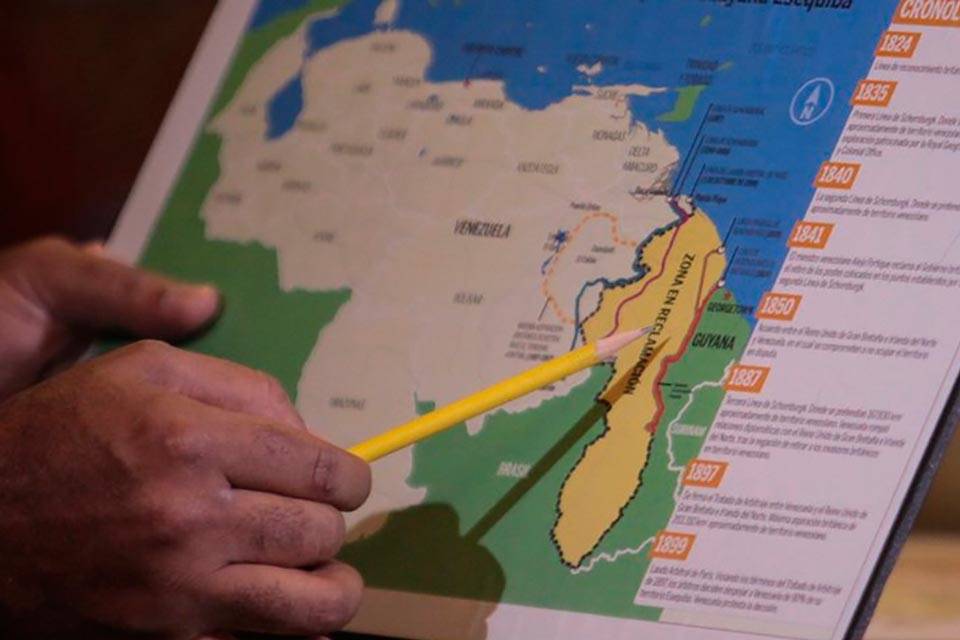Ambassador Samuel Moncada emphasized that Venezuela has for 182 years been struggling against imperial aggression and the territorial integrity of Guayana Esequiba.
In this regard, he stated that “Venezuela cannot accept that in the name of its decolonization, Guyana is repeating the crimes committed by the colonial powers and for this reason, before an international tribunal, it extended a friendly hand to Guyana, maintaining fraternal relations of friendship and cooperation, by not allowing the consequences of the UK’s illegal actions to continue to affect the future of our nation”, said Professor Samuel Moncada.
It also highlights that Venezuela has always followed a policy based on peace, honor and respect for international law, without claiming anything that does not belong to us.
Finally, he mentioned Venezuela’s last request, which asked the court to adjudicate and find Guyana’s claim inadmissible.
Presentation of ongoing arguments to prove Guyana’s claims
Lawyers and specialist Pablo Paquetti, who was brought before the International Criminal Court in Geneva, presented continuing arguments to prove Guyana’s claims.
During the intervention, Paquetti highlighted two fundamental aspects: Guyana’s silence on the possibility of Great Britain’s responsibility, in terms of its fraudulent behavior and, on the other hand, the argument according to which Great Britain would not be an indispensable party. consent, for the court to exercise its jurisdiction.
Paquetti stated, in the argumentation heard last Friday, Guyana emphasized the argument related to Britain’s lack of interest in the disputed territory.
Similarly, he noted that Guyana started its defense timidly, claiming surprise at the presentation of the arguments put forth for the first time, such as Britain’s fraudulent behavior prior to Guyana’s seizure of Esequiba territory.
He also emphasized that if it is found that the UK has maintained fraudulent behavior, the UK must assume its international responsibilities and be obliged to provide adequate reparations, such as its cruel exploitation in the Guayana Esequiba region.
In this sense, he made sure that only the intervention of a third State, following the procedures, could reduce the defects of rejected claims, according to the gold coin principle.
Moreover, he stated that if the court agreed to declare Guyana’s claims inadmissible, there would be no return to the colonial past, the only consequence being a return to the spirit that animates the parties in 1966, when the Geneva agreement was made. signed to find an acceptable solution to disputes about territorial boundaries.
Finally, Andreas Zimmermann concludes that it is necessary to determine the meaning of the operative clause, referring to the reasoning set out in the relevant decision.
Our appreciation: Venezuela’s second presentation lasted 55 minutes. It is clear and objective. 3 Lawyers, Zimmermann, Tams and Palchetti, denied the Guyana allegations and reiterated Venezuela’s position. #21Nov #MyMap pic.twitter.com/UKbV0gkmu7
— My Venezuela map including our Essequibo (@AntroCanal) November 21, 2022

“Web specialist. Incurable twitteraholic. Explorer. Organizer. Internet nerd. Avid student.”






